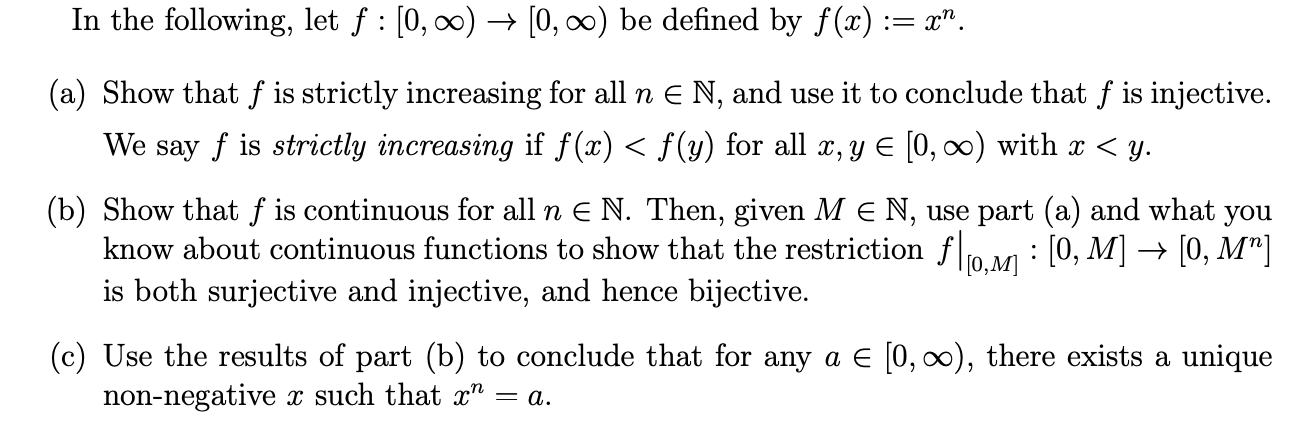Question
In the following, let : [0, ) [0, ) be defined by f(x) = x^. (a) Show that f is strictly increasing for all

In the following, let : [0, ) [0, ) be defined by f(x) = x^. (a) Show that f is strictly increasing for all n = N, and use it to conclude that f is injective. We say f is strictly increasing if f(x) < (y) for all x, y = [0, ) with x < y. (b) Show that f is continuous for all n N. Then, given M N, use part (a) and what you know about continuous functions to show that the restriction f| 10,M] : [0, M] [0, M] is both surjective and injective, and hence bijective. (c) Use the results of part (b) to conclude that for any a [0, ), there exists a unique non-negative x such that x = a.
Step by Step Solution
There are 3 Steps involved in it
Step: 1

Get Instant Access to Expert-Tailored Solutions
See step-by-step solutions with expert insights and AI powered tools for academic success
Step: 2

Step: 3

Ace Your Homework with AI
Get the answers you need in no time with our AI-driven, step-by-step assistance
Get StartedRecommended Textbook for
Foundations of Mathematical Economics
Authors: Michael Carter
1st edition
262531925, 978-0262531924
Students also viewed these Mathematics questions
Question
Answered: 1 week ago
Question
Answered: 1 week ago
Question
Answered: 1 week ago
Question
Answered: 1 week ago
Question
Answered: 1 week ago
Question
Answered: 1 week ago
Question
Answered: 1 week ago
Question
Answered: 1 week ago
Question
Answered: 1 week ago
Question
Answered: 1 week ago
Question
Answered: 1 week ago
Question
Answered: 1 week ago
Question
Answered: 1 week ago
Question
Answered: 1 week ago
Question
Answered: 1 week ago
Question
Answered: 1 week ago
Question
Answered: 1 week ago
Question
Answered: 1 week ago
Question
Answered: 1 week ago
Question
Answered: 1 week ago
Question
Answered: 1 week ago
View Answer in SolutionInn App



